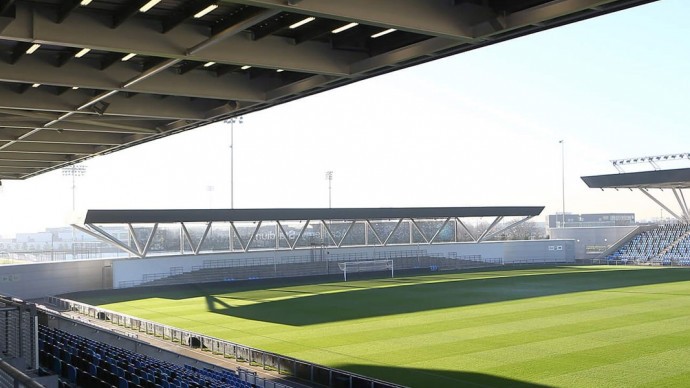
Research: Sport in the Middle East
Examining the factors behind the increasing prominence of the Middle East in the hosting and management of global sport.
About
Research summary
Our research examines the economic, political and socio-cultural factors influencing the Middle East’s increasing engagement with – and investment in – global sport.
Among the examples of how the region has become a significant force in the business and management of global sport are:
- the highly controversial award of the 2022 FIFA World Cup to Qatar, which has shown an increasing appetite for hosting major international sporting events
- Middle Eastern cities and states - such as Abu Dhabi, Saudi Arabia, Istanbul and Bahrain - seeking the prestige of a regular place on the Formula 1 Grand Prix circuit
- acquisition of major European soccer clubs, such as Paris Saint-German and Manchester City, by state-funded sovereign wealth funds from the Arabian Gulf
- Middle Eastern brands – such as Qatar Airways, Etihad, and Turkish Airlines – sponsoring various sports clubs, leagues and tournaments around the world
Dr Paul Michael Brannagan’s research has focused on Qatar’s efforts to host the 2022 World Cup. In particular, he has analysed the political opportunities and consequences facing the small Gulf state through its staging of one of the world’s largest sporting events.
Dr Seth Perkin’s research in the United Arab Emirates has focused on the construction of disability and sport. With the United Arab Emirates becoming increasingly influential within the Paralympic movement, he has examined the developments of disability sport in the country and the cultural conditions that have shaped the landscape of disability.
Research outputs
- Reiche, D and Brannagan, PM (eds) (2021 - forthcoming) The Routledge Handbook of Sport in the Middle East. London: Routledge
- Perkin, SJ and Howe, PD (2021) Understanding the cultural landscape of sport in the United Arab Emirates. In Reiche, D and Brannagan, PM (eds) The Routledge Handbook of Sport in the Middle East. London: Routledge
- Brannagan, PM and Giulianotti, R (2018) The soft power–soft disempowerment nexus: the case of Qatar. International Affairs, 94(5), 1139-1157
- Perkin, SJ and Howe, PD (2017) A Foucauldian Interpretation of Paralympic Sport in the United Arab Emirates: An Exploration Through a Virtual Lens. The International Journal of The History of Sport, 34(13), 1418-1435
- Brannagan, PM and Rookwood, J (2016) Sports mega-events, soft power and soft disempowerment: international supporters’ perspectives on Qatar’s acquisition of the 2022 FIFA World Cup finals. International journal of sport policy and politics, 8(2), 173-188
- Grix, J and Brannagan, PM (2016) Of mechanisms and myths: conceptualizing states’ “soft power” strategies through sports mega-events. Diplomacy and statecraft, 27(2), 251-272
- Brannagan, PM and Giulianotti, R (2015) Soft power and soft disempowerment: Qatar, global sport and football’s 2022 World Cup finals. Leisure studies, 34(6), 703-719
- Brannagan, PM and Giulianotti, R (2014) Qatar, Global Sport and the 2022 FIFA World Cup. In Grix, J (eds) Leveraging Legacies from Sports Mega-Events: Concepts and Cases (pp. 154-165). London: Palgrave Pivot
Team
Masters course
-
Study this topic

MSc Sport Business, Management and Policy
Home to two premiership football teams, the nation’s oldest cricket ground and a renowned velodrome, there’s no better place to study sport business than Manchester.
Contact
Contact us
For general enquiries about our Sports Policy research group, you can contact its lead Prof Jonathan Grix.

